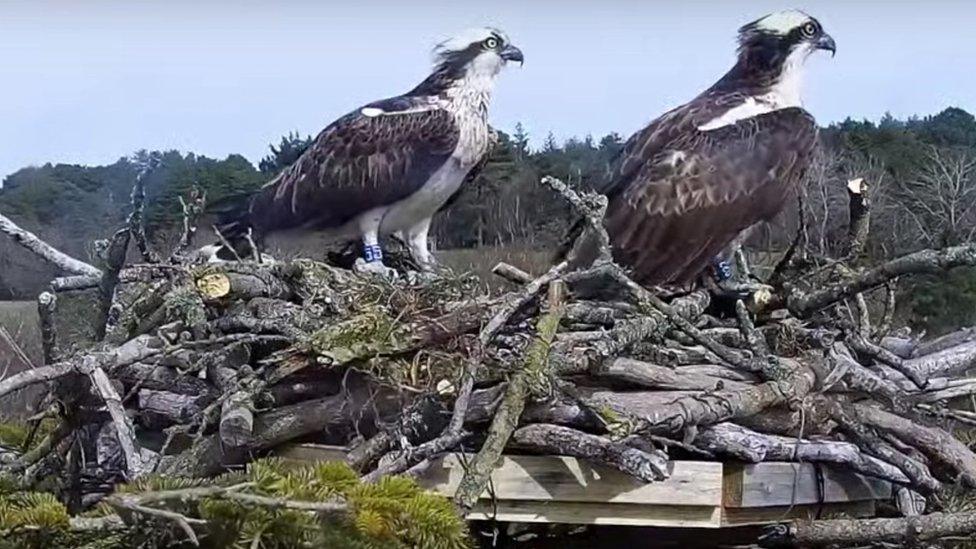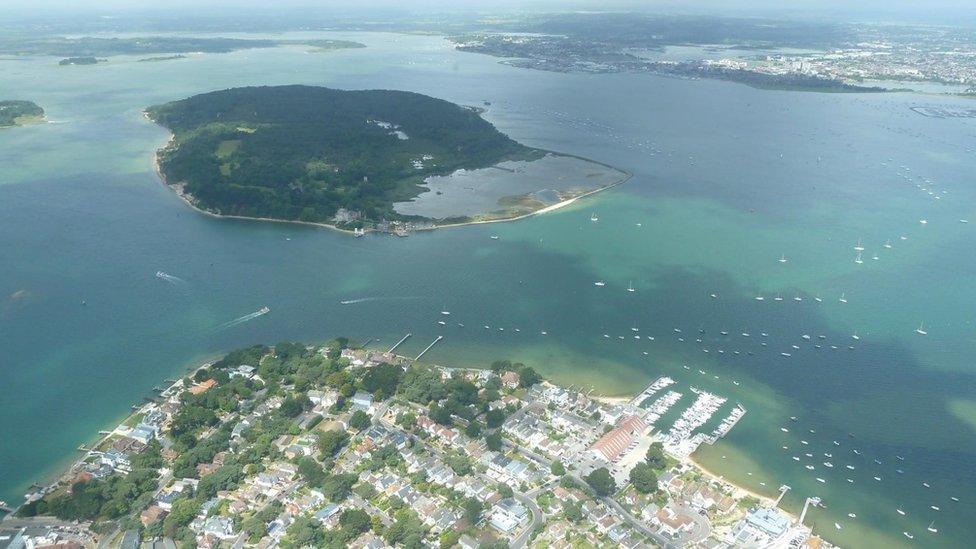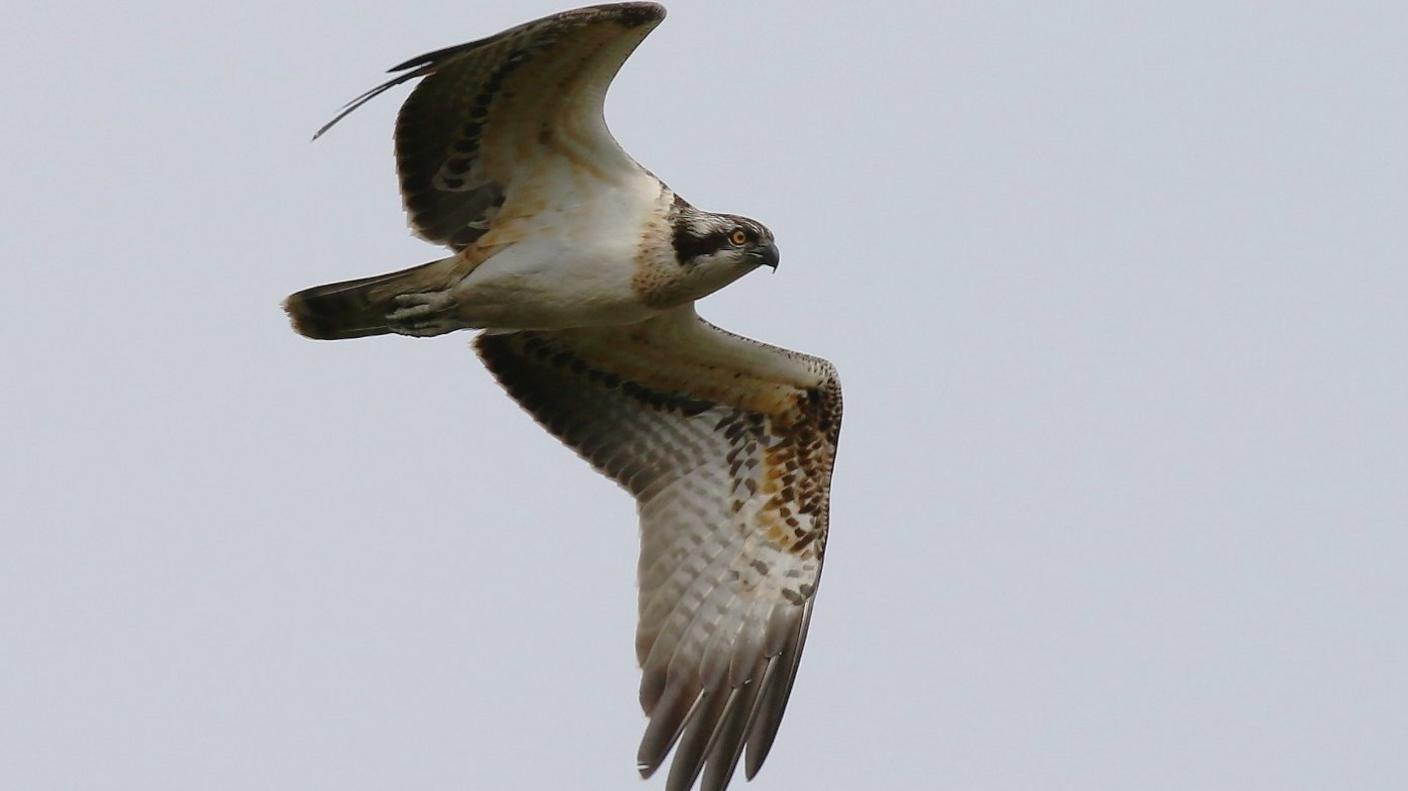Packham joins celebrations over Poole Harbour osprey egg
- Published

The female (left) and male returned to Poole from North Africa
An egg spotted in the nest of a pair of ospreys on the Dorset coast was "sensational news", naturalist Chris Packham has said.
A reintroduction programme began in Poole Harbour in 2017 with the long-term aim of establishing a breeding population.
Birds of Poole Harbour revealed the female - known as C17 - laid the egg on Saturday afternoon.
Packham said it was a "staggering achievement for conservation".

Chris Packham took to social media to congratulate the conservation project
Earlier this month Birds of Poole Harbour said the pair had returned safely on their migration from Africa and were nesting at an undisclosed location in the area.
They first met last summer, although the male was too young to breed.
Announcing news of the appearance of the egg, the charity said it was a "significant milestone" for the project.
"Without doubt, one of the best moments of the last six years which is when we started the project," it added.

The birds of prey are annual visitors to Poole Harbour
Packham posted a video on social media congratulating the team behind the project.
"I'd never thought I'd live to see an osprey's egg in a nest in the south of England.
"Extreme expertise put together over years, patience, energy, ambition and philanthropy played a key role in this reintroduction," he added.
Live webcams, external have been installed on several of the nests so schools and members of the public can observe the ospreys.
The fish-eating birds of prey historically bred across British Isles but populations drastically declined in the Middle Ages.
In 2017, Birds of Poole Harbour and the Roy Dennis Wildlife Foundation began the five-year "translocation" scheme, which involved transferring six-week-old chicks from sustainable populations in Scotland to Poole Harbour.
Other successful osprey conservation programmes have run in Rutland and Kielder Forest in Northumberland.

Follow BBC South on Facebook, external, Twitter, external, or Instagram, external. Send your story ideas to south.newsonline@bbc.co.uk, external.
Related topics
- Published20 June 2017
